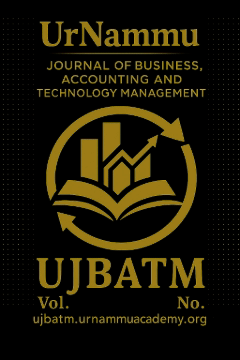Make Your Research Easy to Find with SEO
As an author, one of your primary goals is to ensure your work reaches the widest possible audience—maximising visibility, readership, downloads, citations, and shares. But with an ever-growing volume of published research, how can you make sure your paper stands out?
The answer lies in Search Engine Optimisation (SEO).
What is SEO?
Search Engine Optimisation (SEO) refers to the strategies used to help search engines (such as Google) better understand and rank your content in search results. Given that nearly half of users click on one of the top three search results, effective SEO can greatly improve the visibility of your work.
Optimising for Search Engines
Search engine algorithms evaluate several factors when ranking content, including:
• Links to and from other content (internal and external)
• The quality and relevance of that content
• Use of keywords and key phrases throughout the title, abstract, and body text
The more relevant and natural your keywords are, the more likely your article will appear in relevant search queries.
⚠️ Avoid “keyword stuffing”: Overusing keywords to try to manipulate rankings can hurt your visibility. Instead, write in a natural, reader-friendly tone, focusing on clarity and relevance.
Making Your Title SEO-Friendly
Your article title is one of the most critical SEO elements. Here are some key tips:
• Include essential keywords that reflect your research’s topic and scope—start with the most important.
• Ensure your title is clear and unambiguous, both in meaning and syntax.
• Keep it concise. If your title is too long, search engines may truncate it. Use tools like Moz’s title preview to check length.
Examples of SEO-friendly titles:
• “Knowledge Management in the Metaverse: Does Knowledge Storage Influence Adoption?”
• “Empirical Insights into Organisational Sustainability: The Role of Communities of Practice”
These examples include important keywords, are easy to understand, and clearly signal the paper’s focus.
Choosing the Right Keywords and Phrases
Keywords are the terms readers are most likely to use when searching for papers like yours. Here’s how to choose them wisely:
• Ask yourself: What would someone search for to find this paper?
• Examine similar articles: What keywords or phrases are they using?
• Include specific, descriptive phrases like “business ethics,” not just “business.”
• Incorporate relevant sub-disciplines, methodologies, or broader topics.
• Avoid overly technical jargon or niche terms that have limited search appeal.
• Be mindful of international variations (e.g., “real estate” vs. “property market”).
• Consider synonyms and acronyms (e.g., “CSR” and “Corporate Social Responsibility”).
The goal is to match your language to how people naturally search online.
Writing an SEO-Friendly Abstract
Your abstract is one of the most visible parts of your article—for both readers and search engines. Optimising it is essential:
• Include your main keywords and key phrases naturally.
• Ensure the first sentence is compelling, direct, and includes strong keywords—it often appears in Google search previews.
• Avoid fluff; be clear, informative, and aligned with the content of the paper.
• Remember: abstracts are often freely available, so they influence whether a reader clicks through to your article.
Tip: A video abstract can further enhance discoverability and reader engagement by summarising your findings in a dynamic, visual format.
By following these SEO practices, you improve the discoverability and impact of your research—helping it reach the audiences it deserves. Always write for humans first, but keep search engines in mind as you do.








